Padmanabha Gaura Dvadasi Raghunatha das Gosvami
-
A Celebration of Four Holy Days
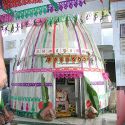
A lecture on the topics of
- Vasanta Pancami
- The Appearance Day of Visnu-priya devi
- The Appearance Day of Srila Raghunatha dasa Gosvami
-
Don't Hear From Them
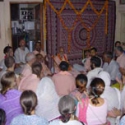
Srimati Radharani is prema-samput, the treasure-chest of love, and She is revealing Her heart to us by describing what is prema. Our guru-parampara has very mercifully collected all this, and they have opened their realizations to us. If any of us can get one drop of this mood, our lives will be successful...
-
Intense Separation
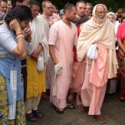
Now come down. Come to the process I have previously given you. We must begin our practice of bhakti from the beginning. I have told you about the aim and object of our sadhana-bhajana and life. It is very high, and if you want to achieve it, be like Srila Raghunatha dasa Gosvami, follow him...
-
Sri Krsna Disguised as a Demigoddess

Sri Krsna said, "Oh Devi, Oh You who are the most qualified girl in the three worlds, even including the Vaikuntha planets. Who in her right mind would dare to consider herself equal to You, for there is no one equal to You in this world...
-
Srila Raghunatha dasa Gosvami

Srila Raghunatha dasa Gosvami took birth in a very aristocratic and wealthy family, and he was the only son of his father and uncle. In boyhood he was very fortunate to be initiated by Srila Yadunandana Acarya in the line of Sri Advaita Acarya. Also, Krsna arranged to send Srila Haridasa Thakura to his home, and they were together often. From babyhood he had great taste in chanting the holy name, and at the age of five he received initiation and gradually developed in his bhakti...
-
Srila Sanatana Gosvami - Vilap Kusmanjali Verse 6
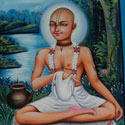
I take shelter of my lord and master, Sri Sanatana Gosvami, who is an ocean of compassion and who always feels sorry for the suffering of others. Although I was unwilling and blinded by ignorance, he diligently made me drink the nectar of devotion laced with renunciation.
-
The Disappearance Day of Srila Raghunatha dasa Gosvami

Srila Raghunatha dasa Gosvami is an eternal associate of Sri Caitanya Mahaprabhu and also of Krsna, but in the pastimes of Mahaprabhu, he showed the sadhana-bhajana for attaining the elevated devotional stages of bhava and prema. If a sadhaka sincerely desires to engage in bhajana to achieve the direct association of the Supreme Lord without delay – perhaps in only one or two births – then he should engage in bhajana just as Raghunatha dasa Gosvami did...
-
The Glories of Gopal Bhatta Gosvami
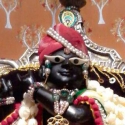
First let us glorify Gopal Bhatta Gosvami. During Caturmasya-vrata Sri Caitanya Mahaprabhu went to South India, to the Ranganathji temple. He began to dance and perform kirtana there, and all were attracted. The members of a very holy family met Him there, and they requested Him, "Please stay at our residence for these four months of Caturmasya, and after that You can go anywhere else...
-
The Glories Of Vasanta Pancami
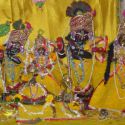
In India, today is a very auspicious day. It is Vasanta-pancami, the first day of spring. Vasanta means spring and pancami means the fifth lunar day. It is also Srimati Visnu-priya devi's birthday, it is the appearance day of Srila Raghunatha dasa Gosvami, and it is also the disappearance day of Srila Visvanatha Cakravarti Thakura...
-
The Life of Srila Raghunatha dasa Gosvami

First, we should know the identity of Srila Raghunatha dasa Gosvami. Srila Gopala-guru Gosvami has stated in his Paddhati that in his siddha-svarupa, his spiritual form in Goloka Våndavana, Srila Raghunatha dasa Gosvami is Sri Rati-manjari, and her nickname is Sri Tulasi-manjari...
-
Vilap-kusmanjali - Verse 6

I take shelter of my lord and master, Sri Sanatana Gosvami, who is an ocean of compassion and who always feels sorry for the suffering of others. Although I was unwilling and blinded by ignorance, he diligently made me drink the nectar of devotion laced with renunciation...
-
Vilap-kusmanjali - Verse Seven

There are two kinds of bhajana. The first is in vipralambha-lila, and that is performed by chanting and remembering the pastimes of separation. The second is in sambhoga-lila, and it is performed by remembering the pastimes of meeting.





